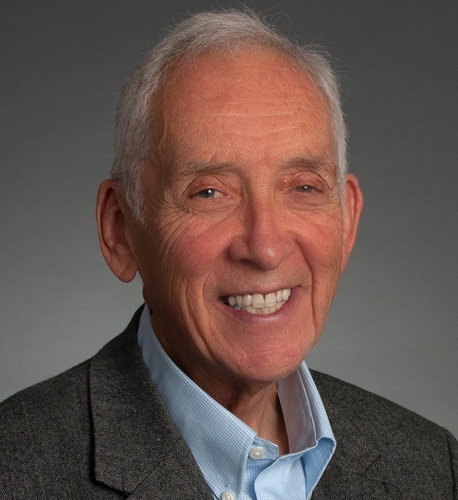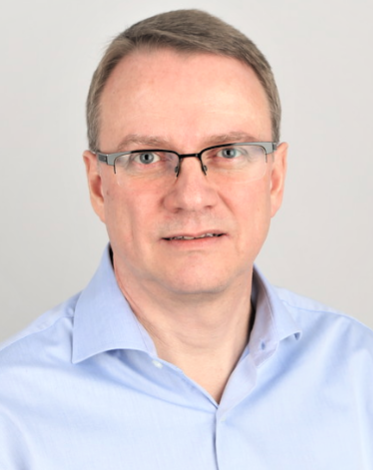Hydrolink Magazine
HOME > Hydrolink Magazine

Advisory Board Latest issue (Free access) Upcoming issues Previous issues (Free access) Advertise in Hydrolink
#HydrolinkMagazine
Hydrolink is the primary magazine of the IAHR community and one of the highest-rated member benefits. It brings you the latest developments in the field of hydro-environment engineering and research through articles on projects, research, and new methods and tools of interest to the community. It also provides a platform for reporting on IAHR Conferences and news from our members, and offers a forum for exchanging information and spreading the word on topics and projects relevant to the community.
The online version of Hydrolink is open to non-members since 2021 as part of the efforts of the association to disseminate and share knowledge. In addition to the online version, IAHR members will continue to receive their full colour printed copy at their desks periodically as a membership benefit.
ISSN: 1388-3445
Publication Frequency: 4 issues per year.
Latest issue ↑
Hydrolink 3, 2025 | Digital Twins
Digital Transformation is one of the IAHR Thematic Priority Areas of the 2024-2027 Strategic Plan. To fully realise the promise of digitalising the water cycle, action must be taken across all levels. IAHR is committed to advancing digital transformation in the water sector, focusing on five key areas essential for a sustainable, data-driven future. Among these, Digital Twins stand out as a particularly powerful tool to enable more comprehensive and dynamic management of the water cycle.
Digital twins are virtual representations of physical systems or infrastructure facilities connected to their physical counterparts through sensors providing data on their condition and/or performance in real time, which allows optimising the management or the operational performance of these systems. The use of digital replicas of physical systems started in the aerospace and systems engineering fields in the 1960s, but the concept of a digital twin was not introduced until the early 2000s, while the term “digital twin” was coined in 2010.
As digital transformation is one of the priority areas of its strategy, IAHR will continue fostering opportunities for collaboration and knowledge sharing on digital twins, as well as on other key digital accelerators, including remote sensing, advanced modelling, sensors and the Internet of Things, and artificial intelligence and machine learning.
This issue of Hydrolink reflects that commitment, gathering insights and experiences from experts and practitioners around the world on the role and potential of digital twins in advancing water science and engineering.
Download and share! Subscribe free!
Contents
In depth > Digital Twins
Digital Twins of Inland Waters: An Introduction by Joan Coines, Kate Baker, Franco Crivello, Albert Chen and Eloisa Vargiu
Building a Digital Twin of the Danish Marine Waters in Support of European Directives by Anders Chr. Erichsen, Mai-Britt Kronborg, Rasmus Fenger-Nielsen, Silvia Huber, Lisbeth T. Nielsen and Troels Lange
Digital Twin Product Derived from Satellite Imagery for Sea Level Rise Simulation in Tonga by Jumpei Takami
Digital Twins Empowering Irrigation Water Management in China by Yuan Shi, Haorui Chen, Baozhong Zhang
Digital Twins in Dutch Drinking Water Utilities: Progress, Challenges, and Opportunities by Mario Castro-Gama, Ton Blom; Claudia Quintiliani, Wouter Huisman, Joeri Legierse and Timo Van Lange
IAHR > IAHR Events Calendar
About the Editor

Angelos Findikakis received his first degree in Civil Engineering in 1968 from the National Technical University of Athens, Greece. After working on water resources planning and development studies in Greece he came to Stanford for graduate studies in 1973. Since 1980 he has been working for Bechtel Corporation in San Francisco. Over the years he worked on a broad range of water studies in support of the permitting, design and construction of several industrial projects including civil infrastructure, power, mining, oil and gas, and waste storage facilities. As a Bechtel Fellow since 1998 he advises senior management on questions related to his expertise, participates in strategic planning, and helps disseminate new technical ideas and findings throughout the organization.
About the Guest Editor

Henrik Madsen is Research Manager at DHI managing DHI’s research project portfolio and research funding activities. He has more than 15 years of experience with research and innovation management. He has managed and participated in a large number of national and international research projects and has considerable experience collaborating with academia and the water industry. His main research interests include data-model fusion, real-time forecasting, optimisation and control of water systems, hydrological extremes, uncertainty and risk analysis, and climate change impact assessment.
Upcoming issues ↑
Issue 4, 2025: Adaptive Management for Climate Change
Issue 1, 2026: River Basin Authorities
Issue 2, 2026: Remote Sensing
Issue 3, 2026: Aging Water Infraestructures
Issue 4, 2026: Water Security and Sustainability
Other upcoming issues:
Water Reuse
Water in Agriculture: current use and future trends
The Future of Water Infraestructure: New developments and maintenance of existing ones
If you wish to contribute to any of the above mentioned issues or propose new topics please contact Editor Angelos Findikakis and our Publications Manager Estíbaliz Serrano at publications@iahr.org
Previous issues ↑
The online version of Hydrolink is open to non-members as part of the efforts of the association to disseminate and share knowledge. In addition to the online version, IAHR members will continue to receive their full colour printed copy at their desks periodically as a membership benefit.
Full access to previous issues Join IAHR!
Advertise with us
Hydrolink currently reaches around 27,000 subscribers targeted as researchers, water engineers, academics, water practitioners, and industry representatives and provides you with the best platform to carry your message to the hydro-environment engineering community. Please check our advertisement rates and offers.
Information for authors
Most articles published in every issue focus on a specific theme developed by the Editor with the support of the Hydrolink Advisory Board and the IAHR Executive Committee. If you would like to propose a theme for a future issue, or contribute an article on one of the planned themes, please contact either the editorial assistant, Estibaliz Serrano, or the editor, Angelos N. Findikakis.
>> Instructions and guidelines for authors [PDF format]
Advisory board ↑
Editor
Angelos N. Findikakis, Bechtel Fellow, Bechtel Corp, USA
Technical Editors
Mehedi Hasan Bappy, Research Engineer, Intelligent Medicine Inc., USA
Mistaya Langridge, McCloy Consulting Ltd, Ireland
Editorial assistant
Estíbaliz Serrano, IAHR Secretariat Madrid Office, Spain, publications@iahr.org
Advisory board
Luis Balairón, Director of Hydraulics Laboratory, CEDEX - Ministry Public Works, Spain
Jean Paul Chabard, Professor at Ecole des Ponts Paris Tech, Project Manager, EDF Research & Development, France
Jaap C.J. Kwadijk, Scientific director, Deltares, The Netherlands
Henrik Madsen, Head of Research and Development, DHI, Denmark
Rafaela Matos, Head of Hydraulics and Environment Department, Laboratório Nacional de Engenharia Civil (LNEC), Portugal
Sean Mulligan, VorTech Water Solutions and National University of Ireland Galway (NUIG), Ireland
Yasuo Nihei, Tokyo University of Science, Japan
Jing Peng, President, China Institute of Water Resources and Hydropower Research, China
Olivier Bertrand, Project Manager, Artelia Eau & Environnement, France
James Sutherland, Principal Scientist, HR Wallingford, UK
José N. De Piérola, Senior Advisor in Water Resources Management, Peru
Ex-officio
Peter Goodwin, Past President of IAHR, President of University of Maryland Center for Environmental Science, United States of America
